#mohan joshi hazir ho
Text

Mohan Joshi Hazir Ho!, 1984 Film Poster
1 note
·
View note
Photo
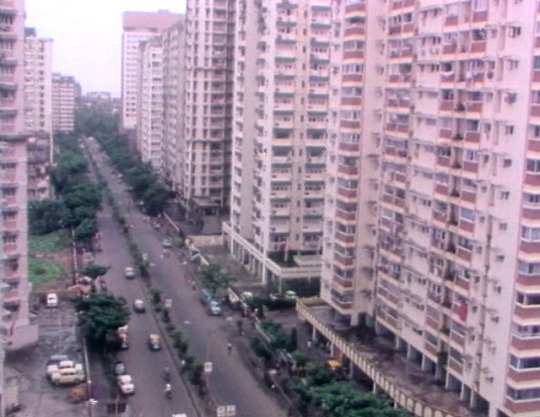
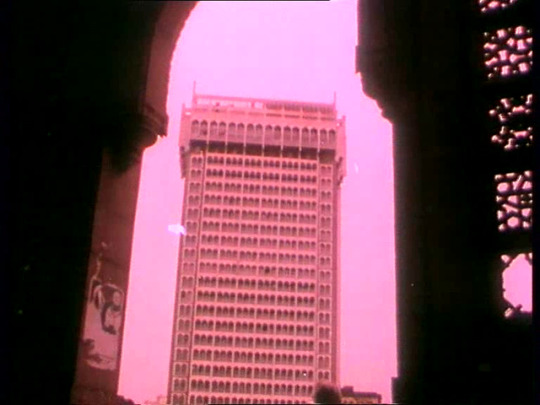

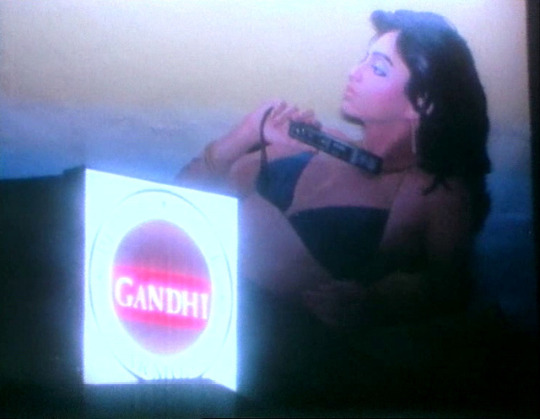
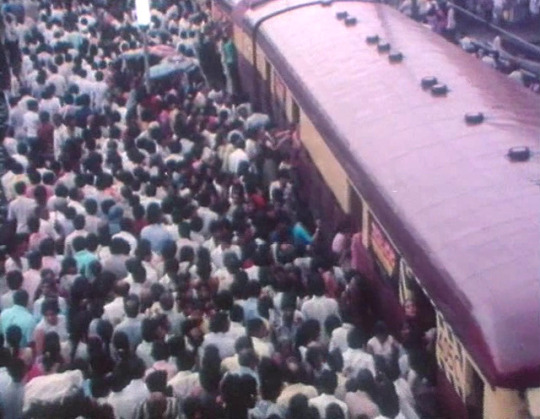

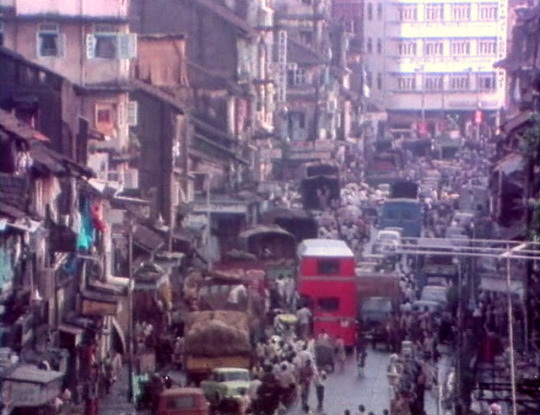

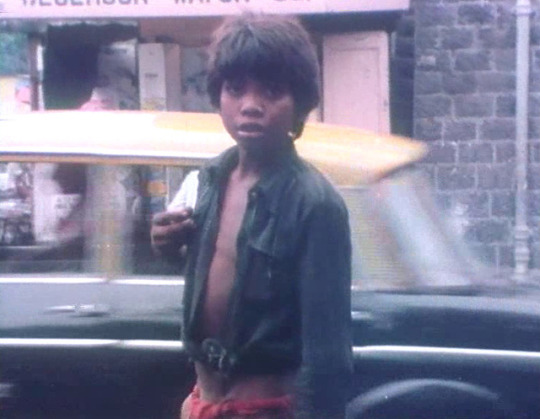

Amrit Gangar: RENU’S MUMBAI / रेणूजी की बम्बई
The title might sound as unpredictable as Renu Saluja’s ‘cuts’ in the films that she edited in her short but brilliant career in Mumbai. Renu Saluja (1952-2000) sailed across the shores – both parallel and mainstream. And on both sides of the river, we’d invariably discover precious pearls of her creativity. When Praba Mahajan informed me of the titles of the films to be screened as part of the GraFTII’s homage to her, I found that out of eight films, five – Mohan Joshi Hazir Ho! (A Summons for Mohan Joshi, 1983), Jaane Bhi Do Yaaron (Who Pays the Piper, 1983), Parinda (1989), Dharavi (1991), Split Wide Open (1999) – had a direct relationship with Mumbai, the city where Renu lived all her working life.[1]
It’s all about Renu’s Mumbai, thought I. A strange claim, but in the film production line-up, she was the final artist who had to weave a definite story from the available footage; cutting and splicing shots and sequences, honing the director’s vision, and imperceptibly her own, too. In the process, she had a legitimate claim on the ‘city’. These films so palpably demonstrate how strongly she must have felt about her city, else how could have they evoked its indomitable self and spirit in their peculiar pace and pep?[2]
To me Bombay is the city of ‘cuts’ (not in the corrupt sense of ‘cut’ practice, but in its dramatic sense), the astonishing ‘experiential cuts’ that you find while walking on her streets, or driving on her roads, or travelling in her trains, you always encounter the unexpected, on every step, at every moment. And these ‘cuts’ Renu Saluja must have experienced and internalized to give back their spirit to the films that she gave the final shape to as editor. In the crevices of their ‘cuts’, the punctuations chosen by Renu Saluja breathed the city. It matters little whether she was born in Mumbai or not. But cumulatively she was writing a meta-cinematographic ‘editorial’ about Mumbai. I think she was giving us a Baudrillardian high, “Where is the cinema? It is all around you outside, all over the city, that marvellous continuous performance of films and scenarios,” said the philosopher.[3]
Editing was the final scripting stage of a film, Renu believed. A script is first written on paper – once, twice, ten times; it is then rewritten in the director’s mind and in the minds of the technicians and actors. Then a major rewrite takes place in shooting. Finally in the editing, it is constructed bit by bit with images and sounds. As she once said, one needed as much time to do sound as the actual picture cutting did. She always worked in close liaison with the sound recordist after the final cut.[4]
[...] For every filmmaker, I suppose, the initial challenge is how to take off, how to set the story ball rolling on the screen. Watch any of the films edited by Renu and mark the ways they take. In those few foundational minutes, she skillfully quintessentializes the macro world of the story into its contextual microcapsule, while the rest, as it were, would be just an elaboration, an unfolding. The way she ‘cut’ the first seven minutes in Mohan Joshi Hazir Ho! is remarkable. It is difficult to make out whether she cut it on music and song or was it the other way round. I saw it over a decade and a half ago but still can’t forget the juxtaposed image of the dying fish; perhaps because of the power of Renu’s montage that could enter the Brechtian conscience. The way we are introduced to Mohan Joshi and his wife Rohini and their ensuing struggle to get their chawl tenement repaired – it sustains even today. It is Saeed Mirza who has so consistently evoked Bombayness in his oeuvre – the city’s neighbourhoods, its lifestyle, its street language, its hybridity, its oddities, its aspirations, its agonies and ecstasies.[6] Last year, while participating in the IBM² seminar on the New Wave, Mirza said, he was the most regional filmmaker in India.[7] As editor, Renu very subtly understood the filmmaker’s urban ethos.
230 notes
·
View notes
Text

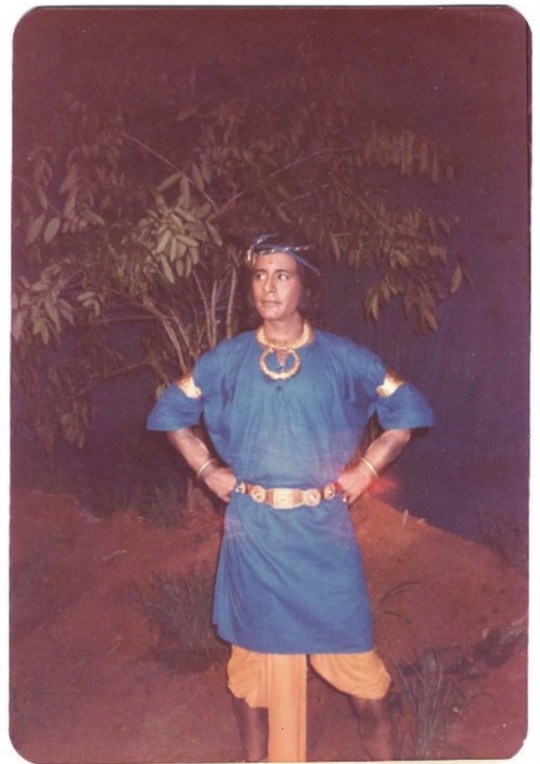
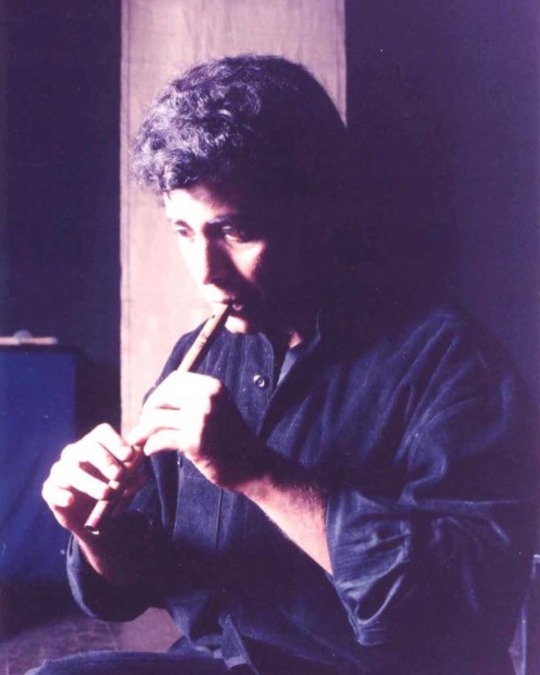
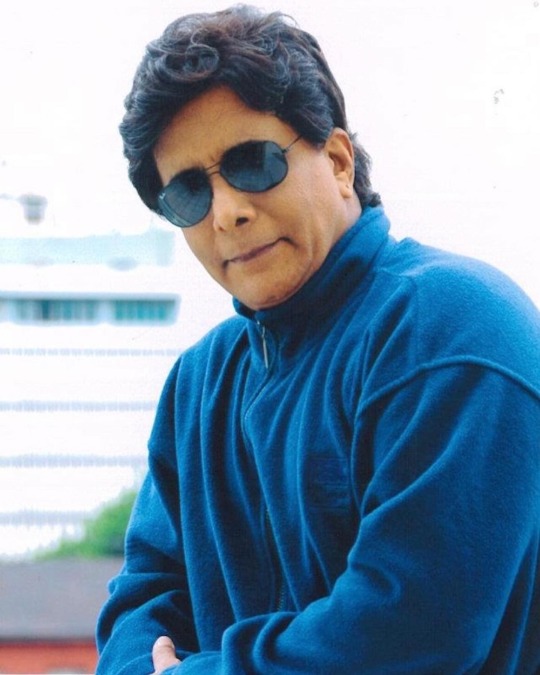
RIP #SalimGhouse 🙏🏻
Veteran actor Salim Ghouse passed away earlier today.
He was part of films like Manthan, Kalyug, Chakra, Saaransh, Mohan Joshi Hazir Ho, Trikal, Aghaat, Drohi, Thiruda Thiruda, Sardari Begum, Koyla, Soldier, Aks, Vettaikaaran Well Done Abba & Kaa.
5 notes
·
View notes
Text
I see my films as essays, which you can accept or reject: Saeed Mirza
I see my films as essays, which you can accept or reject: Saeed Mirza
[ad_1]
There was a time when his films showed us the other side of the popular view. Films like Arvind Desai Ki Ajeeb Dastaan, Albert Pinto Ko Gussa Kyun Ata Hai, Mohan Joshi Hazir Ho and Salim Langde Pe Mat Ro weren’t just lengthy titles, they reflected the unwieldy side of our democracy as well. Now in his latest book, a collection of essays, tales and folktales, Saeed Akhtar Mirza has decoded…
View On WordPress
#Anuj Kumar#Arvind Desai Ki Ajeeb Dastaan#Kaifi Azmi#Memory In The Age of Amnesia#Naseem#Saeed Akhtar Mirza#Salim Langde Pe Mat Ro
0 notes
Photo

Happy Birthday, Pankaj Kapur.
Pankaj Kapur (born 29 May 1954) is a theatre, television and film actor. He is the father of actor Shahid Kapoor with his first wife, Neelima Azeem. He has appeared in several television serials and films.
His most acclaimed film roles to date have been that of Inspector P.K. in Raakh (1989), Dr. Dipankar Roy in Ek Doctor Ki Maut (1991) and Abba ji, (based on Shakespeare's King Duncan) in Vishal Bhardwaj's adaptation of Macbeth; Maqbool (2003), all three roles which got him National Film Awards.
In the 1980s, he became a household name through the TV series Karamchand, a comedy television series in the detective genre. And in the millennium, Office Office, a comic satire on prevalent corruption in India.
He made his film debut with Shyam Benegal's film Arohan (1982). Following that he played the role of Mahatma Gandhi's second secretary, Pyarelal, in the Richard Attenborough film Gandhi in 1982. Later he dubbed for Ben Kingsley in the Hindi version of the film.
Thereafter he appeared in a string of art films that came under the parallel cinema category, with leading art films directors, starting with Shyam Benegal's Mandi (1983), Kundan Shah's comedy Jaane Bhi Do Yaaro again in 1983. This was followed by Saeed Akhtar Mirza satirical Mohan Joshi Hazir Ho! (1984), Mrinal Sen's Khandhar (1984), and Vidhu Vinod Chopra's suspense thriller Khamosh in 1985. He appeared in many art films, many of which went on to win National Film Awards.
In 1986, he switched to television, with the role of Karamchand jasoos(detective) in the detective-comedy, Karamchand, also starring Sushmita Mukherjee. Over the years he has been seen in numerous TV serials, including, Kab Tak Pukaroon (Doordarshan) Zabaan Sambhaal Ke (a remake of the English TV series, Mind Your Language), Lifeline with Vijaya Mehta, Neem ka Ped and finally comic interludes in Philips Top 10.
Meanwhile, his tryst with art cinema continued, as he starred in films like Chameli Ki Shaadi (1986), Ek Ruka Hua Faisla (1986), and Yeh Woh Manzil To Nahin (1987). In 1987, his comic side was visible again in the commercial action film Jalwa, also starring Naseeruddin Shah.
His first National Film Award came with the 1989 film, Raakh, which also starred Aamir Khan.
He starred in the classic Punjabi film Marhi Da Diva (1989). He featured in the 1992 Mani Ratnam film Roja directed. (Roja was made in Tamil and later dubbed in Hindi, Marathi, Telugu and Malayalam.)
In 2000 he returned to television with the serial Office Office a satirical take on the prevalent corruption in India.
In 2003 he appeared in Maqbool, Vishal Bhardwaj's adaptation of Shakespeare's Macbeth. His antagonistic performance as the short-statured, potbellied, shuffle-footed Abbaji in Maqbool got him the 2004 National Film Award for Best Supporting Actor. Meanwhile, he released films like The Blue Umbrella (2005), Dus (2005) and Halla Bol (2007). In 2006, he started to be seen again on TV. In the TV series, Naya Office Office, a sequel to his previous series Office Office.
2 notes
·
View notes
Photo

Remembering Dina Pathak, Bollywood’s most famous and loved mother, on her 96th birth anniversary today.
Dina Pathak (4 March 1922 – 11 October 2002) was a veteran actor and director of Gujarati theatre and also a film actor. She also was an activist and remained the President of the 'National Federation of Indian Women' (NIFW).
A doyenne of Hindi and Gujarati films as well as theatre, Dina Pathak acted in over 120 films in a career spanning over six decades. Her production Mena Gurjari in Bhavai folk theatre style, ran successfully for many years, and is now a part of its repertoire.
She is best known for her memorable roles in the Hindi films Gol Maal and Khubsoorat. She was a favourite of the Art Cinema in India where she played powerful roles in films like Koshish, Umrao Jaan, Mirch Masala and Mohan Joshi Hazir Ho!.
Her notable Gujarati films were Moti Ba, Malela Jeev, and Bhavni Bhavai while her well-known plays include Dinglegar, Doll's House, Vijan Sheni and Girish Karnad's Hayavadana, directed by Satyadev Dubey.
Follow Bollywoodirect बॉलीवुड डायरेक्ट Bollywoodirect
2 notes
·
View notes
Photo
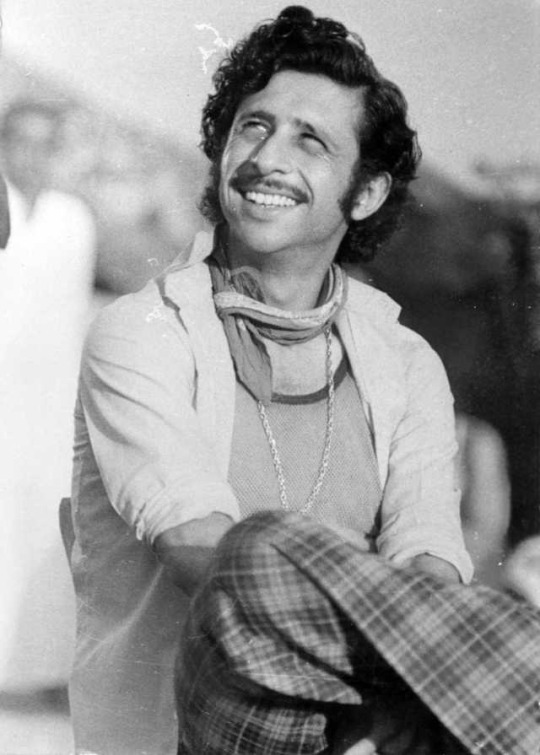
Wishing Naseeruddin Shah many happy returns of the day.
Naseeruddin Shah (born 20 July 1949) is a film and stage actor and director, and a prominent figure in Indian parallel cinema. Shah has won numerous awards in his career, including three National Film Awards, three Filmfare Awards and an award at the Venice Film Festival. The Government of India has honoured him with the Padma Shri and the Padma Bhushan awards for his contributions to Indian cinema.
Shah has acted in movies such as Nishant, Aakrosh, Sparsh, Mirch Masala, Albert Pinto Ko Gussa Kyon Ata Hai, Trikal, Bhavni Bhavai, Junoon, Mandi, Mohan Joshi Hazir Ho!, Ardh Satya, Katha, and Jaane Bhi Do Yaaro, to name a few.
Shah became active in mainstream Bollywood cinema with the 1980 film Hum Paanch. In 1982, he acted in the film Dil Aakhir Dil Hai directed by Ismail Shroff, opposite Rakhee. One of his most important films, Masoom, was released in 1983 and was shot at St Joseph's College, Nainital. His next major success in mainstream films was the 1986 multi-starrer film Karma where he acted alongside veteran Dilip Kumar. Starring roles for films such as Ijaazat (1987), Jalwa (1988) and Hero Hiralal (1988) followed. In 1988 he played opposite his wife Ratna Pathak as Inspector Ghote, the fictional detective of H. R. F. Keating's novels in the Merchant-Ivory English language film The Perfect Murder. He acted with Aditya Pancholi in films like Maalamaal (1988) and Game (1993).
He has acted in several multi-starrer Bollywood films as well, such as Ghulami (1985), Tridev (1989) and Vishwatma (1992). In 1994, he acted as the villain in Mohra, his 100th film as an actor. He forayed into Malayalam cinema the same year, through T. V. Chandran's critically well acclaimed drama Ponthan Mada. The film portrayed the irrational bonding of a feudal serf (played by Mammootty) and a colonial landlord (played by Shah). He strongly believed that the distinction between art and commercial films had largely reduced, especially with the directors of the former also making commercial films. In 2000, his dream of playing Mahatma Gandhi was realised when he played Gandhi in Kamal Hassan's critically acclaimed Hey Ram which focused on the assassination of Gandhi from the assailant's point of view. Shah won critical acclaim by playing the role of Mohit, the drunken coach to a deaf and mute boy in Iqbal, which was written by Vipul K Rawal with Shah specially in mind. Shah was praised for his roles in the 1999 Aamir Khan-starrer Sarfarosh, where he played Gulfam Hassan – a ghazal singer-cum-terrorist mastermind — and in Neeraj Pandey's critically acclaimed A Wednesday (2008).
Shah has also starred in international projects, such as Monsoon Wedding in 2001 and a Hollywood comic book adaptation The League of Extraordinary Gentlemen in 2003 (co-starring Sean Connery), where he played the role of Captain Nemo. His portrayal of Nemo was very close to the design of the graphic novel, although his Nemo was far less manic. He worked in Vishal Bhardwaj's Indian adaptation of Shakespeare's Macbeth, titled Maqbool, in 2003, and Rajiv Rai's Asambhav opposite Arjun Rampal and Priyanka Chopra in 2004. He then went on to work in The Great New Wonderful (2005). In 2011, Shah was seen in The Dirty Picture. He acted in Anup Kurian's The Blueberry Hunt, playing a recluse growing marijuana in his forest retreat, and in Waiting, starring opposite Kalki Koechlin, both of which were released in 2016.
Shah made his Pakistani film debut in Khuda Ke Liye by Shoaib Mansoor, where he played a short cameo. His second Pakistani film Zinda Bhaag was selected as the country's official entry to the 86th Academy Awards for the Best Foreign Language Film award.
Like बॉलीवुड डायरेक्ट Bollywoodirect
7 notes
·
View notes
Photo
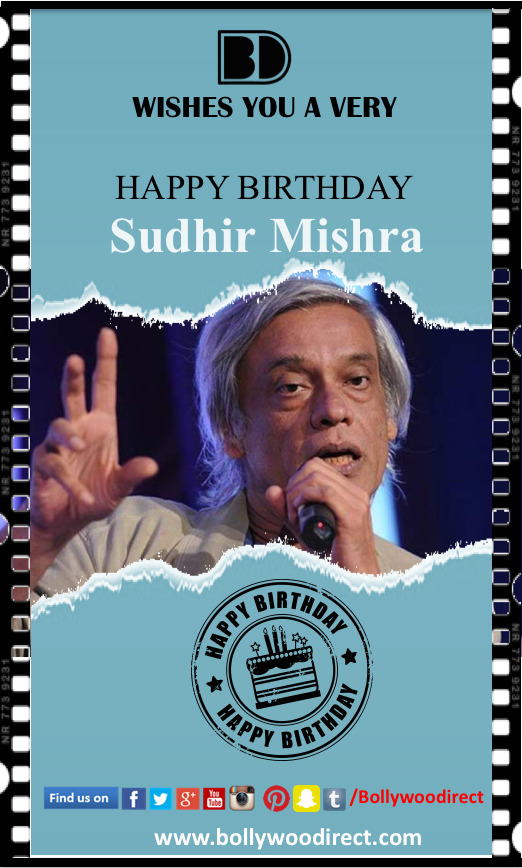
Wishing Sudhir Mishra many happy returns of the day.
Sudhir Mishra is a film director and screenwriter known for directing critically acclaimed films like Hazaaron Khwaishein Aisi, Dharavi and Chameli.
Mishra has had a 30-year career with his work recognized by the Government of India by him receiving three National Awards from the President of India, as well as Chevalier of the Ordre des Arts et des Lettres by the French government (equivalent to knighthood). He was one of the pioneers of the alternative independent cinema movement in India in the 1980s and he is one of the few directors from that era who has still managed to remain contemporary.
He moved to Mumbai in 1980, and started his career as assistant director and scriptwriter in Kundan Shah's comedy classic Jaane Bhi Do Yaaron (1983) and later worked with Saeed Akhtar Mirza in Mohan Joshi Hazir Ho! (1984) and with Vidhu Vinod Chopra in Khamosh (1985).
He made his directorial debut with the film, Yeh Woh Manzil To Nahin in 1987 which won the National Film Award for Best First Film of a Director.
He went on to make acclaimed films like Dharavi (1991), Main Zinda Hoon (1988), Is Raat Ki Subah Nahin (1996) and Chameli (2003), and his most acclaimed film to date, the 2005 movie on the Naxalite movement, Hazaaron Khwaishein Aisi. This was followed by Khoya Khoya Chand in December 2007 and Yeh Saali Zindagi in 2011. His latest film was Inkaar in 2013. The movie starred Arjun Rampal and Chitrangada Singh.
2 notes
·
View notes